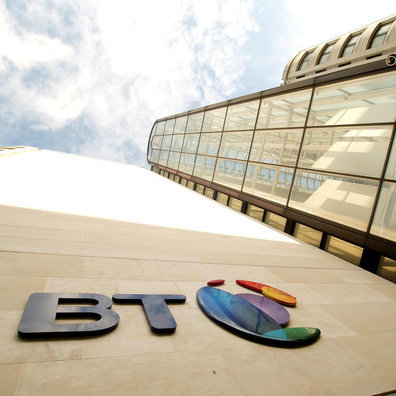Eurobites: BT Puts Its Money Where Its Mouth Is on Fiber Broadband
Also in today's EMEA regional roundup: Deutsche Telekom updates on vectoring rollout; Iliad Italy goes for youth; Orange deputy CEO on the move?

Also in today's EMEA regional roundup: Deutsche Telekom updates on vectoring rollout; Iliad Italy goes for youth; Orange deputy CEO on the move?
BT Group plc (NYSE: BT; London: BTA) is sticking its neck out and guaranteeing speeds of 100 Mbit/s with its new Ultrafast Fibre broadband packages, offering customers compensation if their speeds fall below that benchmark. Mind you, customers will have to pay handsomely for the privilege -- £54.99 (US$75.60) a month for the Ultrafast Fibre 1 option (up to 152 Mbit/s download) and £59.99 ($82.50) a month for Ultrafast Fibre 2 (up to 314 Mbit/s). BT says that more than a quarter of a million UK homes will be able to take advantage of the offer.
Meanwhile, Deutsche Telekom AG (NYSE: DT) has been tooting its trumpet over the progress it has made on the vectoring front, with more than 358,000 households in 207 cities now able to hook up to fiber-to-the-cabinet broadband that offers 100 Mbit/s download and 40 Mbit/s upload.
Youth and lack of experience are no barriers to responsibility at Iliad, it seems. The French service provider, which has caused havoc at home with its low-cost mobile plans, has named a 29-year-old as CEO of its nascent Italian operation, according to Reuters. Benedetto Levi has been the Italian country manager of the Trainline website since June 2015 and before that worked for a design accessory business he co-founded, according to his LinkedIn page. With a background in the food and hospitality business, Levi appears to have had zero experience in a telecom environment, but Iliad (Euronext: ILD) -- with its determination to be a trendy digital business and not a stodgy telco -- seems unlikely to regard this as an Achilles heel (geddit?). The company picked up Italian assets from 3 Italia and Wind Hellas Telecommunications S.A. as a regulatory condition of their merger and hopes to repeat the success it has already enjoyed in its domestic market. Levi will have his work cut out, though, as Iliad targets a 10% share of the Italian market. Prices have already tumbled and conditions are far more competitive than they were in France in 2012, when Iliad first strode into the mobile market. Founded in 1990 by French billionaire Xavier Niel, Iliad started out as a broadband operator and is today one of France's biggest operators of both fixed and mobile networks. (See Iliad's Italian Odyssey May Be a Hard Slog.)
The Next Generation Enterprise Network Alliance (ngena) , an association of various operators dedicated to spreading the gospel of SDN, has welcomed A1 Telekom Austria Group to the fold. NGENA was launched in February 2016, and now counts several big-name operators within its ranks, including Deutsche Telekom, CenturyLink Inc. (NYSE: CTL) and SK Telecom (Nasdaq: SKM).
Nokia Corp. (NYSE: NOK) has landed a five-year managed services contract with Australia's Optus, covering network infrastructure, operations and field maintenance. As part of the deal, Nokia says it will deploy "extreme automation" -- yikes. I think it may be referring to this sort of thing. (See Optus Hands Nokia a Five-Year Managed Services Deal.)
Ericsson AB (Nasdaq: ERIC) has been canvassing smartphone users to find out what they want from their devices and the mobile "ecosystem" that surrounds them. Its Towards a 5G consumer future report lists six "consumer calls to action," which can be boiled down thusly: simplify the presentation of mobile data plans; offer us peace of mind over the amount of data we use; treat unused gigabytes of mobile data as a form of currency; think beyond data buckets; give us 5G services within four years; and cut down on the marketing BS. And as regards 5G, operators may take heart from the finding that the technology appeals to 76% of smartphone users and 44% would be willing to pay extra for it.
— Paul Rainford, Assistant Editor, Europe, Light Reading
About the Author(s)
You May Also Like












